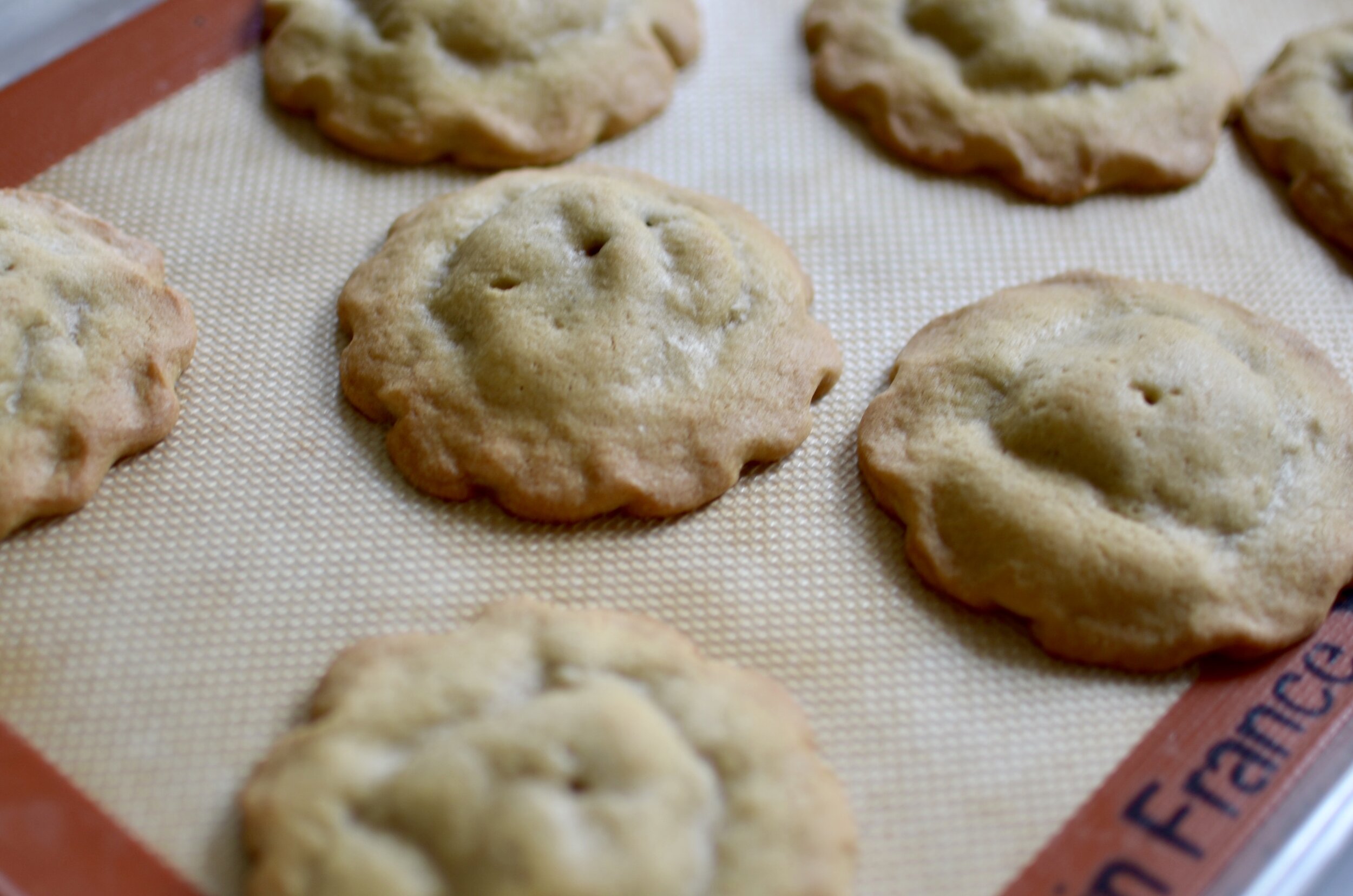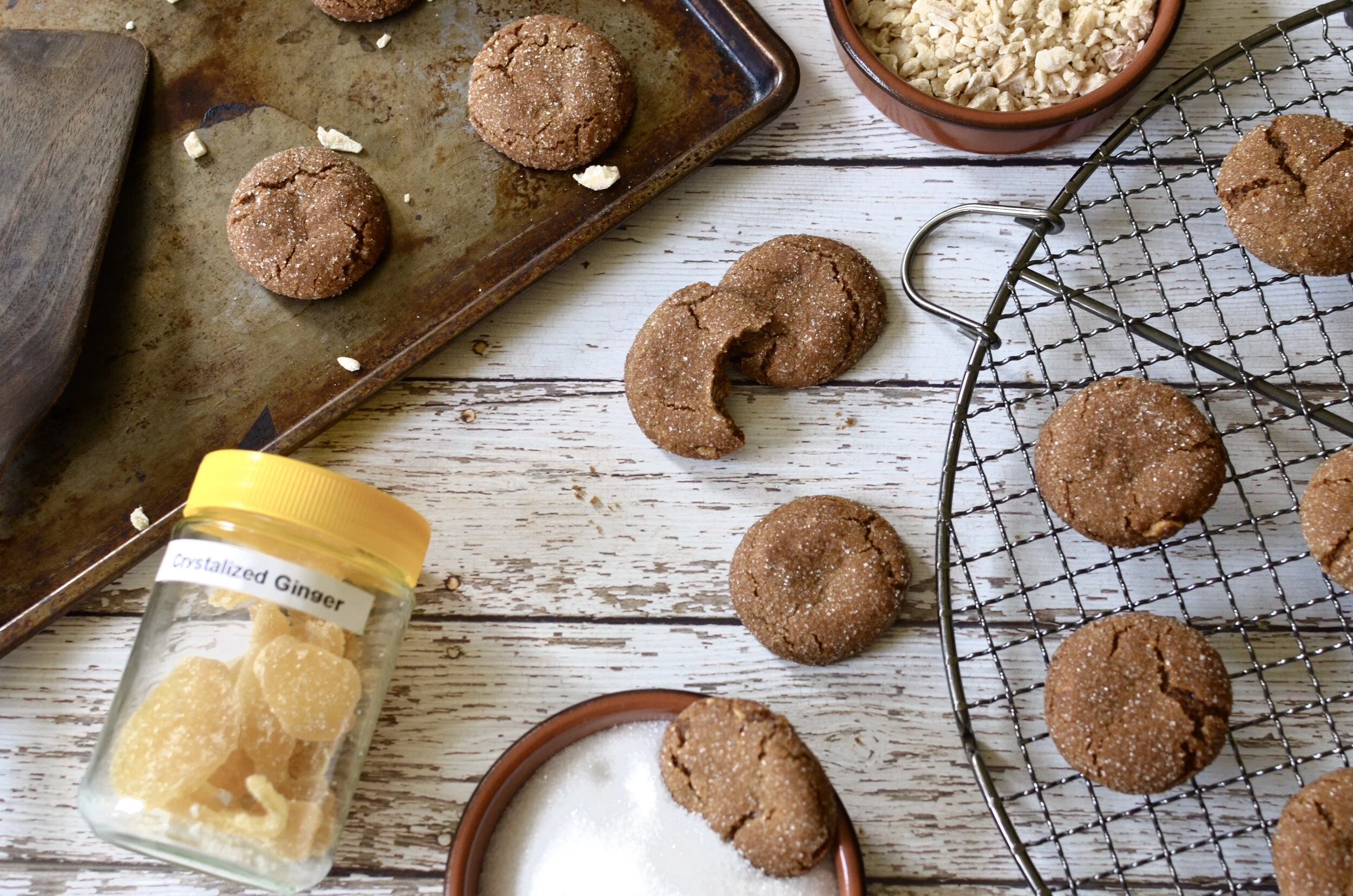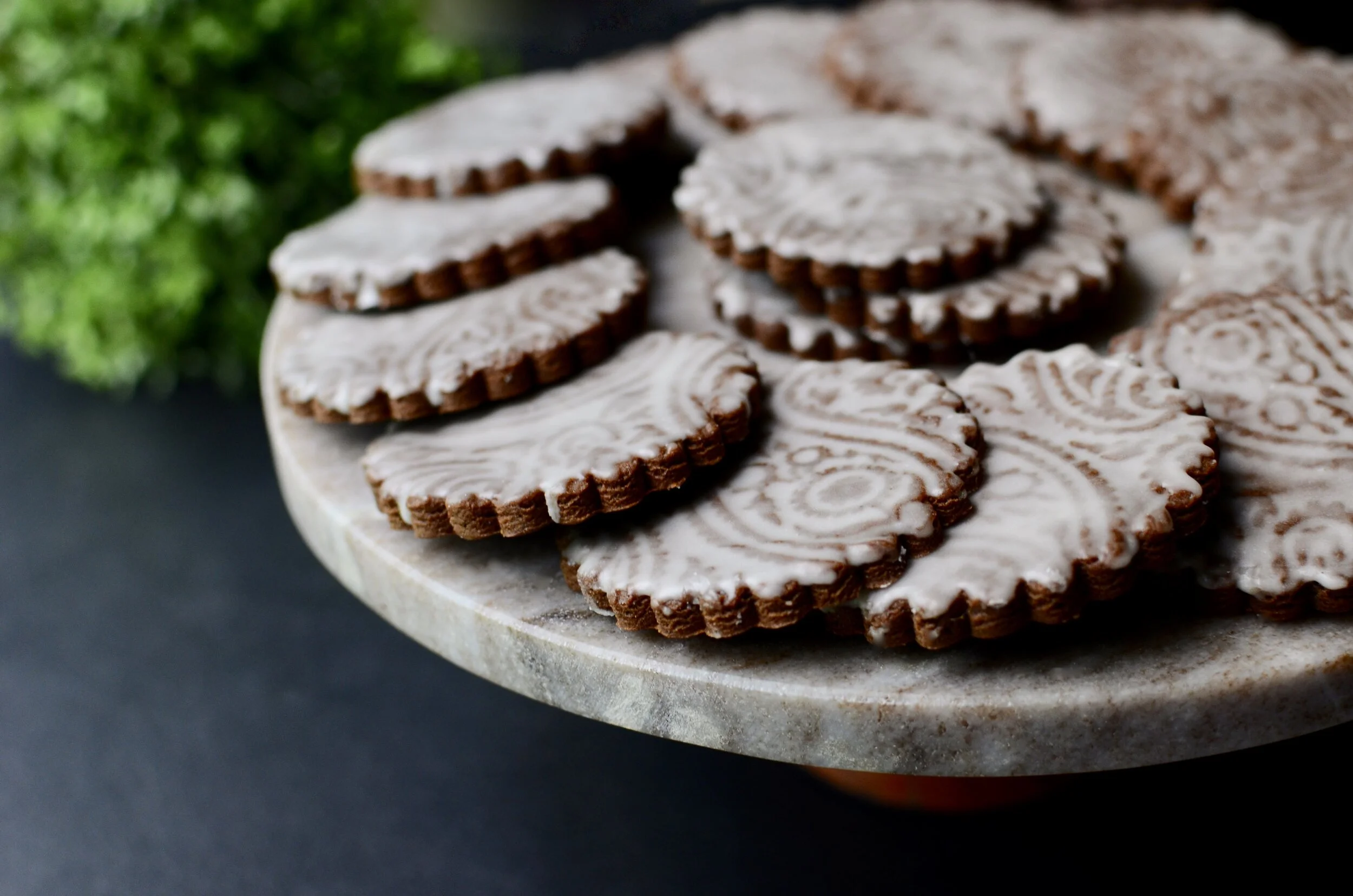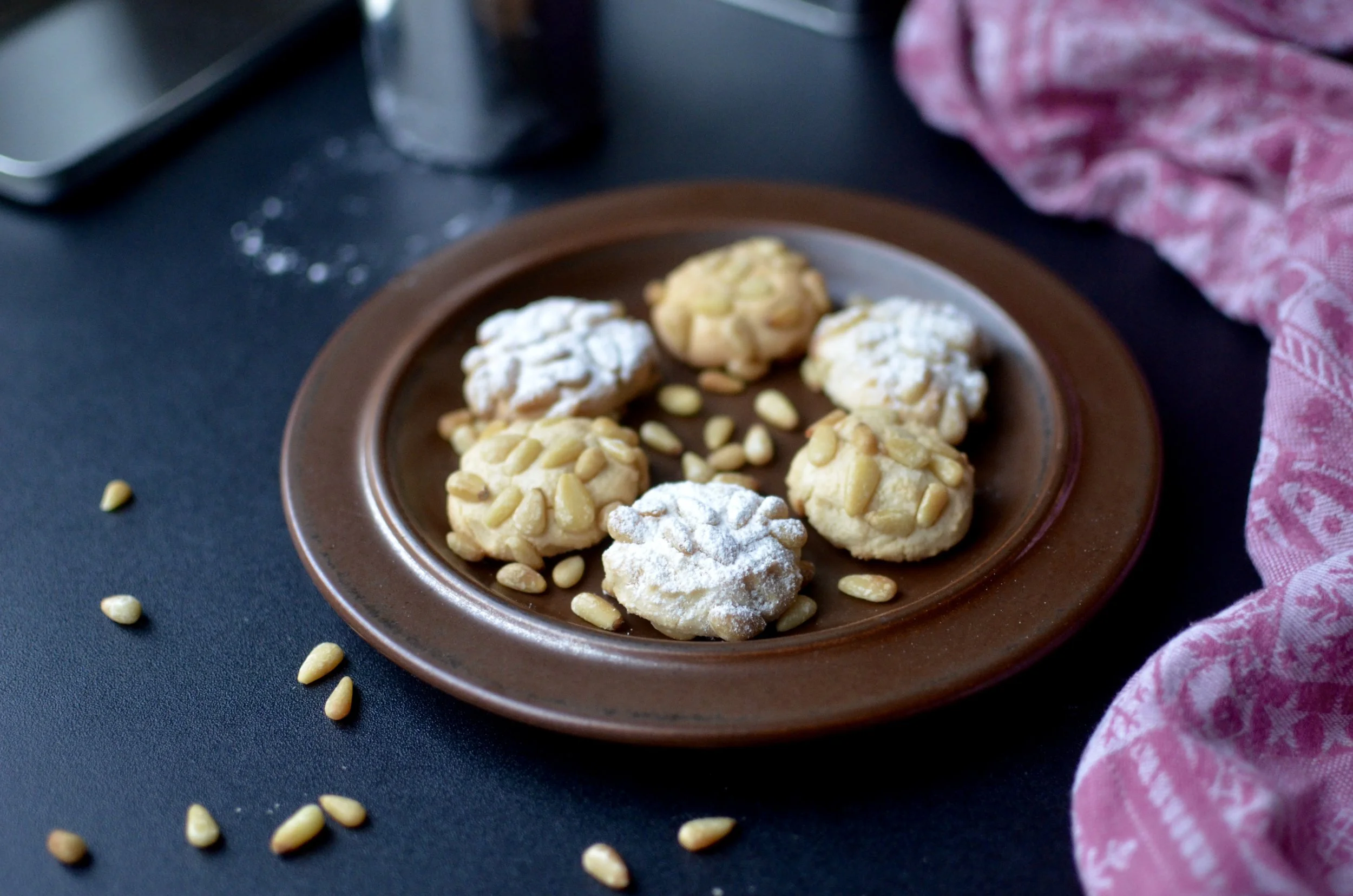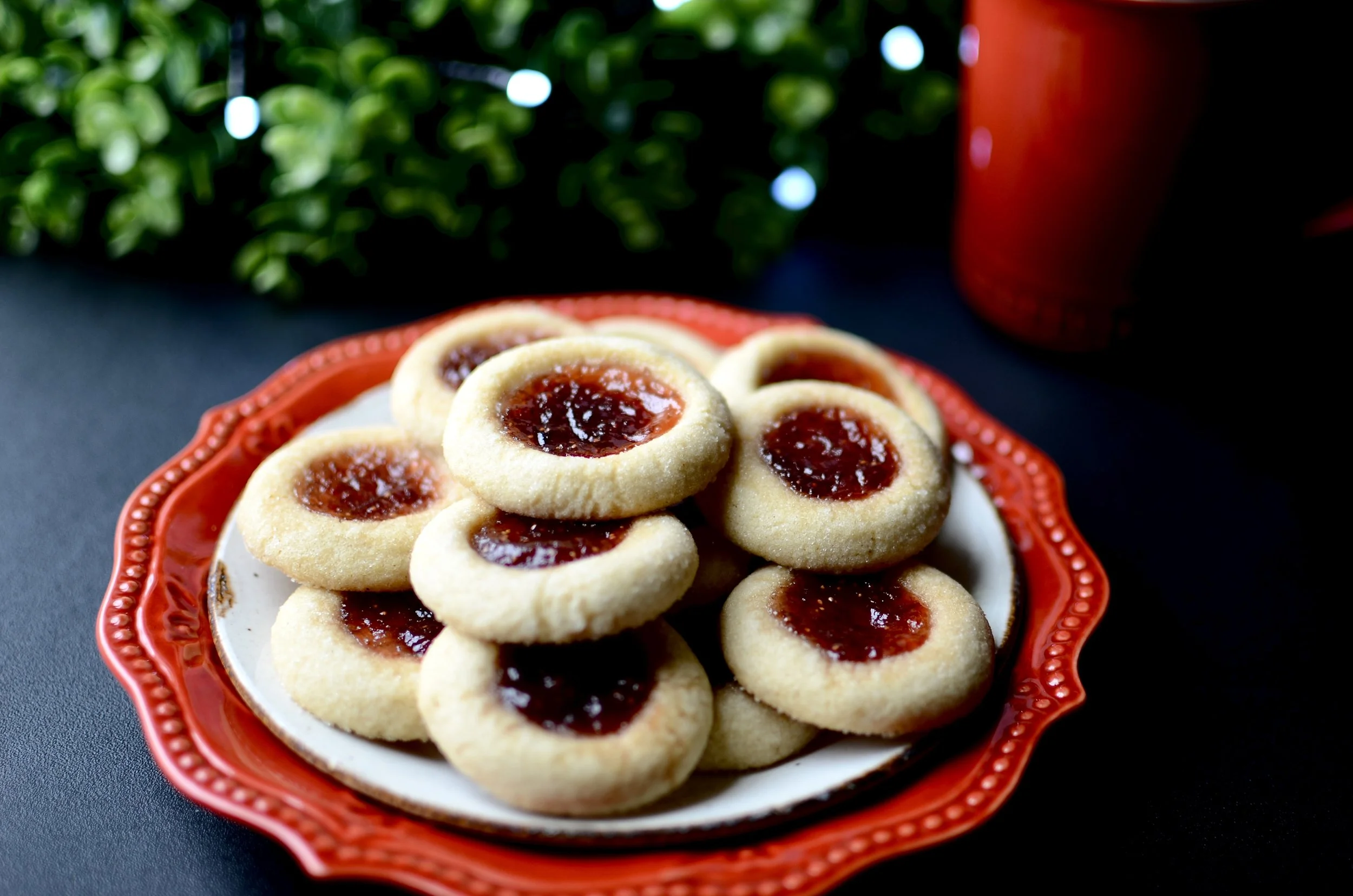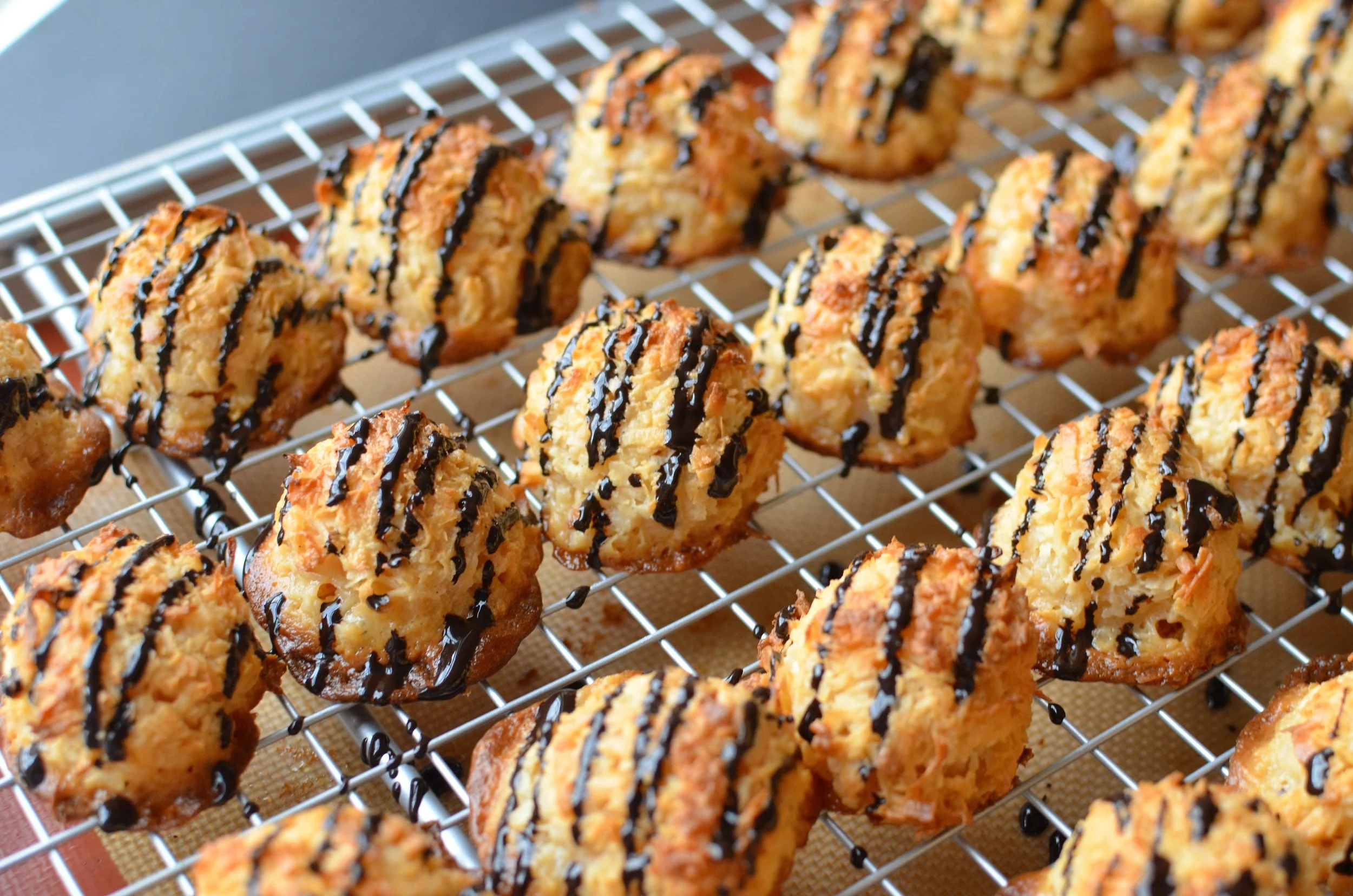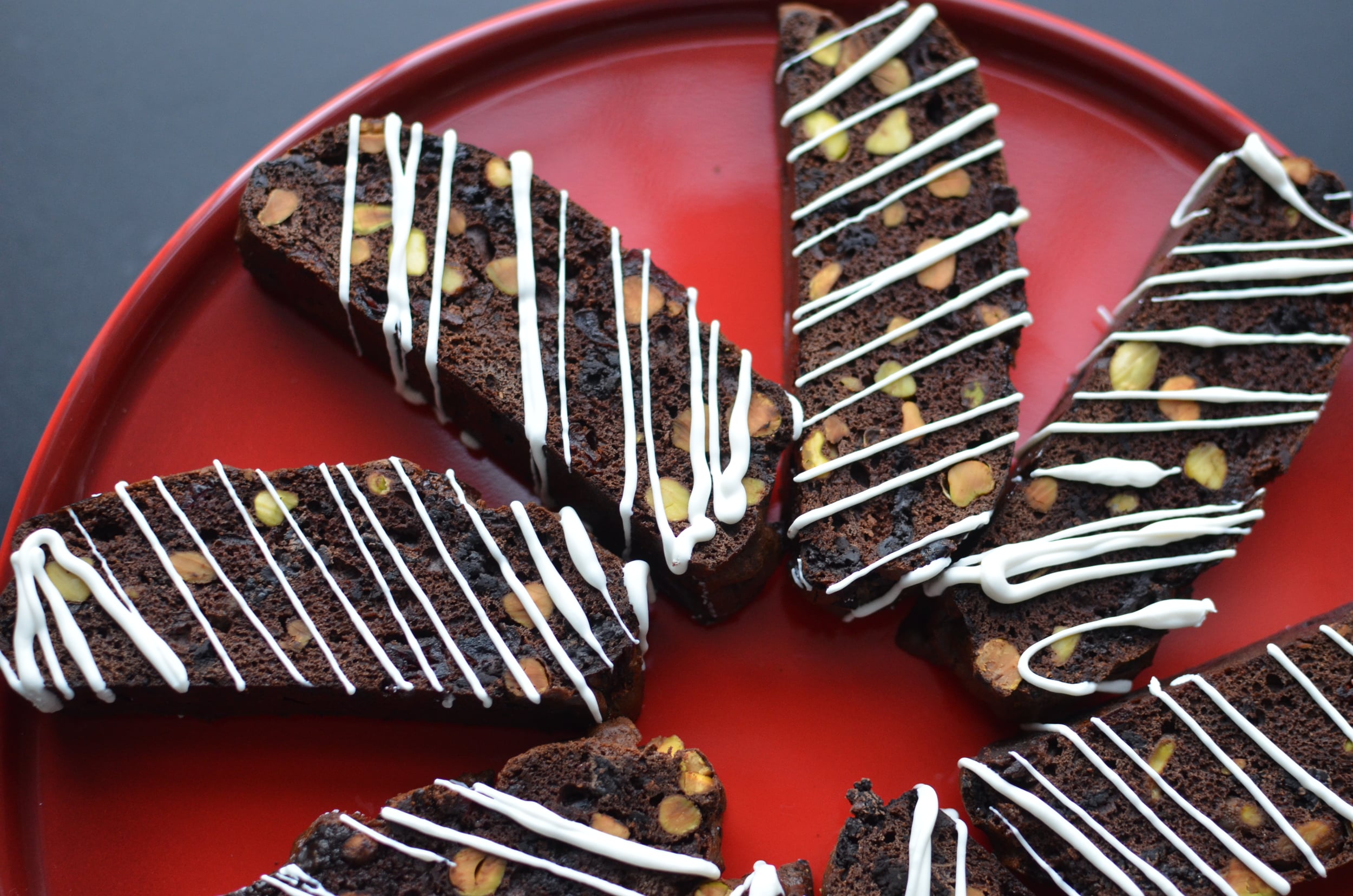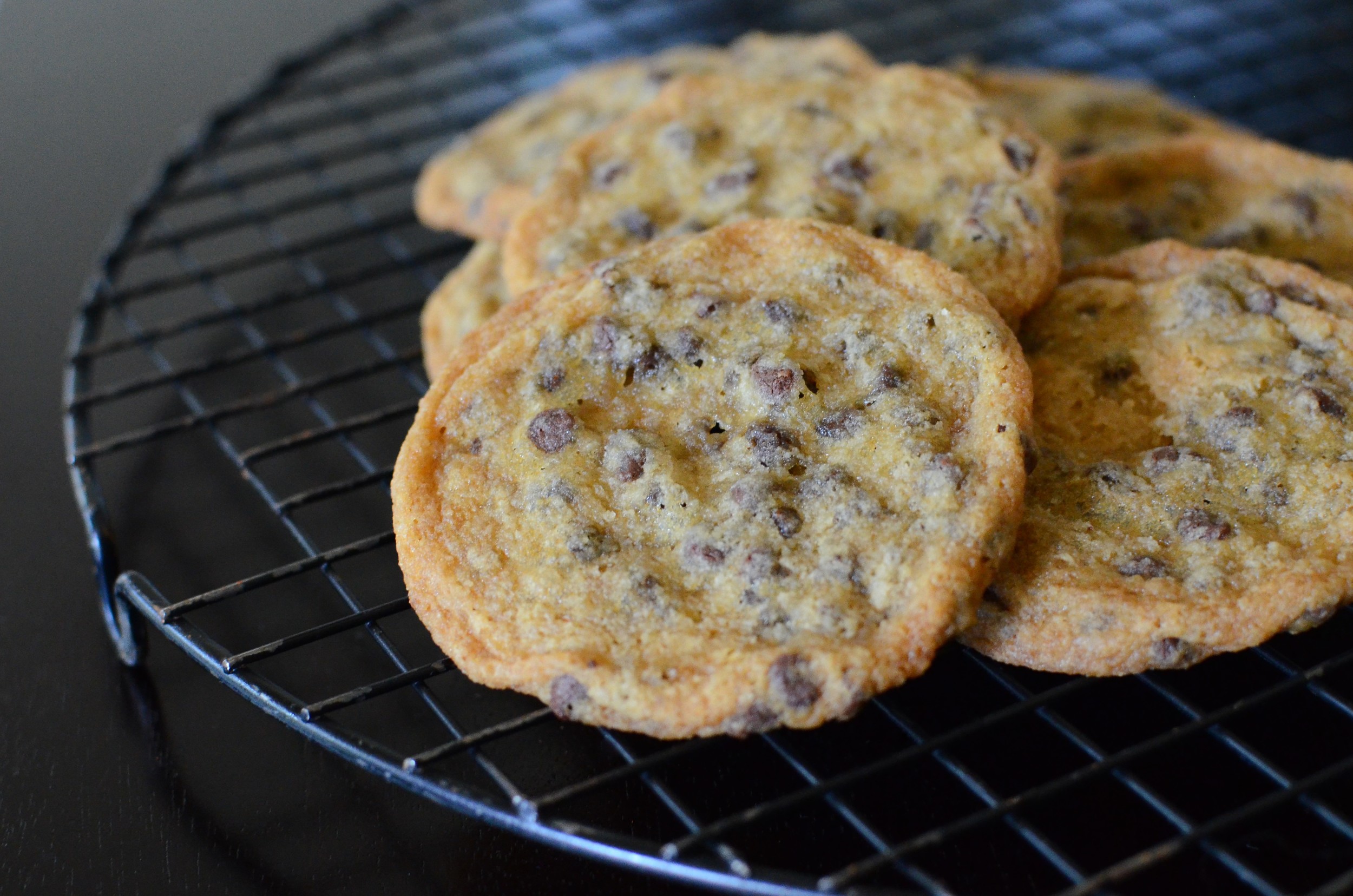Hungarian Shortbread: Tuesdays with Dorie
Patricia @ ButterYum
TWD Hungarian Shortbread - ButterYum
Today I'm thrilled to be joining the Tuesdays with Dorie baking group for the first time. This group is baking their way through the book Baking with Julia and today's featured recipe is Gale Gand's Hungarian Shortbread (page 327, Baking with Julia by Dorie Greenspan).
This shortbread is delicious, but it's very rich and very sweet. It's different than other shortbread recipes I've tried - the dough contains egg yolks, it's chilled and grated before being pressed lightly into the baking pan, there's a ribbon of jam baked in the middle, and the shortbread is liberally sprinkled with powdered sugar when it's piping hot out of the oven. Dorie fills her shortbread with homemade strawberry-rhubarb jam, but I had a jar of sugar-free raspberry preserves to use up. Glad I chose sugar-free because the shortbread is very sweet.
I reduced the recipe by half and baked it in an 8-inch square pan. I should also mention that I goofed and set my oven temp 25F higher than I should have - despite my error, the shortbread tasted wonderful although I'm sure it's a bit darker in color than it should have been (easily camouflaged with a sprinkling of powdered sugar).
The recipe can be found at the following host blogs: 1 Small Kitchen and The Not So Exciting Adventures of a Dabbler. If you're interested in joining this baking group and/or would like to visit other blogs who baked along, visit Tuesdays with Dorie.
(affiliate links)















